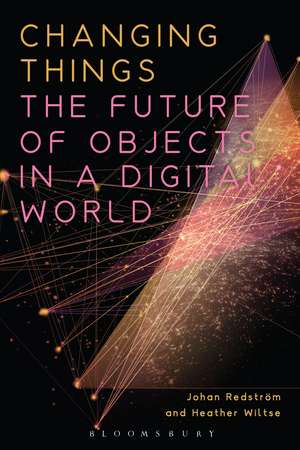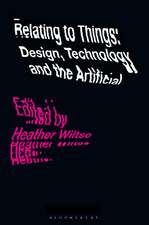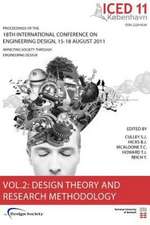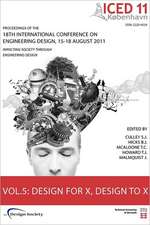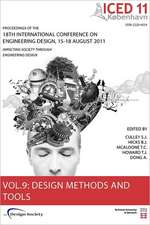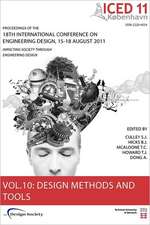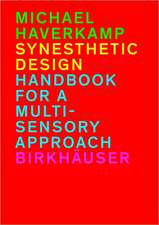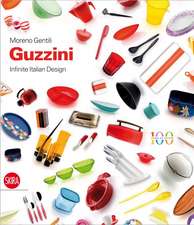Changing Things: The Future of Objects in a Digital World
Autor Johan Redström, Heather Wiltseen Limba Engleză Paperback – 8 ian 2020
| Toate formatele și edițiile | Preț | Express |
|---|---|---|
| Paperback (1) | 184.59 lei 6-8 săpt. | +55.12 lei 6-12 zile |
| Bloomsbury Publishing – 8 ian 2020 | 184.59 lei 6-8 săpt. | +55.12 lei 6-12 zile |
| Hardback (1) | 713.72 lei 6-8 săpt. | |
| Bloomsbury Publishing – 19 sep 2018 | 713.72 lei 6-8 săpt. |
Preț: 184.59 lei
Preț vechi: 227.48 lei
-19% Nou
Puncte Express: 277
Preț estimativ în valută:
35.32€ • 37.08$ • 29.32£
35.32€ • 37.08$ • 29.32£
Carte tipărită la comandă
Livrare economică 10-24 aprilie
Livrare express 05-11 martie pentru 65.11 lei
Preluare comenzi: 021 569.72.76
Specificații
ISBN-13: 9781350141032
ISBN-10: 1350141038
Pagini: 192
Ilustrații: 30 BW illus
Dimensiuni: 156 x 234 x 18 mm
Greutate: 0.32 kg
Editura: Bloomsbury Publishing
Colecția Bloomsbury Visual Arts
Locul publicării:London, United Kingdom
ISBN-10: 1350141038
Pagini: 192
Ilustrații: 30 BW illus
Dimensiuni: 156 x 234 x 18 mm
Greutate: 0.32 kg
Editura: Bloomsbury Publishing
Colecția Bloomsbury Visual Arts
Locul publicării:London, United Kingdom
Caracteristici
Takes 'thing studies' in a new direction by addressing digital, networked 'things', and providing a theoretical framework for understanding them
Notă biografică
Johan Redström is Professor and Research Director at Umeå Institute of Design, Sweden.Heather Wiltse is Assistant Professor at the Umeå Institute of Design, Sweden.
Cuprins
1. Introduction
2. What is going on with things
3. Just press play, please
4. Fluid assemblages
5. Things for us
6. Things in themselves
7. A conceptual toolkit
8. Assembling an analytic playlist
9. Making concepts
References
Index
Recenzii
Reading Changing Things, you have the sense that until this book, we have been drifting when it comes to digital interaction design, inadequately translating how we make physical things to a realm with very different dynamics. Wiltse and Redstrom offer not just a guide for designers crafting coherent interactions in connected and flowing contexts, but the beginnings of an ontology of digitally-enabled or -located experiences.
Things have never been stable. Yet, they have never been as fluid as they are today. By enriching our understanding of contemporary objects, Redström and Wiltse offer designers a new vocabulary to discuss how things exist and are expressed in a digital world.
In Changing Things, Redström and Wiltse develop a critical, rich and compelling new theory of things that is essential for thinking, designing and living in a digital age. Their concept of fluid assemblages is a vital contribution for making sense of the networked and dynamic nature of designed digital things today as well as in the multiple possible futures that we may design. Most importantly, they invite us to join the conversation, paying close attention to the ways in which our shifting relations with things are as important as those we have with one another.
Things have never been stable. Yet, they have never been as fluid as they are today. By enriching our understanding of contemporary objects, Redström and Wiltse offer designers a new vocabulary to discuss how things exist and are expressed in a digital world.
In Changing Things, Redström and Wiltse develop a critical, rich and compelling new theory of things that is essential for thinking, designing and living in a digital age. Their concept of fluid assemblages is a vital contribution for making sense of the networked and dynamic nature of designed digital things today as well as in the multiple possible futures that we may design. Most importantly, they invite us to join the conversation, paying close attention to the ways in which our shifting relations with things are as important as those we have with one another.
